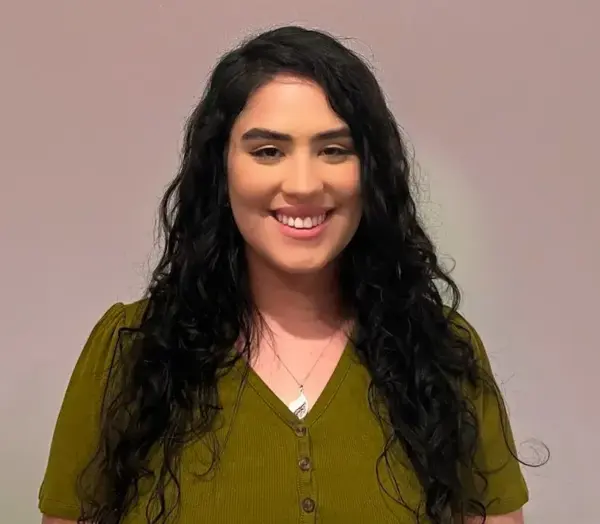Attachment Theory:
Looking at Love From a Therapeutic Lense

Attachment theory is a psychological theory that explains the nature of emotional bonds between humans. It was first proposed by John Bowlby in the 1950s, and has been further developed by researchers such as Mary Ainsworth, Cindy Hazan, and Phillip Shaver. The theory states that individuals have an innate need to form close relationships with others, and that these relationships serve a survival function. In other words, attachment is a fundamental aspect of human nature that plays a critical role in our ability to form healthy and successful relationships.
5 key components of attachment theory
What Is Attachment Theory?
1. Early Childhood Impacts on Attachment
According to research, attachment styles are formed in childhood and tend to remain relatively stable throughout one’s lifetime (Bowlby, 1969). These attachment styles are characterized by the way in which an individual responds to separation and stress. There are three main attachment styles: secure, anxious-ambivalent, and avoidant.
- Secure individuals have a positive view of themselves and others, and tend to have healthy relationships.
- Anxious-ambivalent individuals have a negative view of themselves and tend to be overly dependent on others.
- Avoidant individuals have a negative or fearful view of others and tend to be emotionally distant.
2. Predicting Relationship Outcomes
Research has consistently shown that attachment styles predict relationship outcomes, with secure individuals being more likely to form healthy and lasting relationships (Hazan & Shaver, 1987). For example, a study by Feeney, Noller, and Callander (1994) found that secure individuals reported higher levels of satisfaction, trust, and commitment in their relationships, compared to individuals with anxious-ambivalent or avoidant attachment styles.
3. The Role of Emotion Regulation and Attachment
Another important aspect of attachment theory is the relationship between attachment styles and emotional regulation. When we are secure, we tend to have better emotional regulation and can cope with stress and negative emotions. In comparison, when we are anxious-ambivalent or avoidance, we tend to struggle to regulate emotions or cope with heightened stress. (Mikulincer & Shaver, 2007).
4. Attachment styles can be changed
While attachment styles tend to be relatively stable, research has also shown that they can be changed, particularly through therapy or other forms of intervention (Levy & Davis, 1988). For example, a study by Johnson and colleagues (2009) found that individuals who received attachment-based therapy reported significant improvements in their attachment styles and relationship satisfaction. Attachment based therapy incorporates attachment theory along with CBT to help us gain more insight about our thoughts, beliefs and experiences
5. Our perceptions Impact our attachment
Finally, attachment theory also has implications for cognitive and neural processes. Research has shown that attachment styles are related to different patterns of neural activation and cognitive processing (Fraley & Shaver, 2000; Mikulincer & Shaver, 2007). For example, secure individuals tend to have more positive memories of past relationships and are less likely to ruminate on negative emotions, compared to individuals with anxious-ambivalent or avoidant attachment styles.
Attachment Theory In A Nutshell
We understand the nature of human relationships through the use of research, experience & observation. Attachment theory gives a helpful framework for understanding our relationships and highlights the importance of early experiences. These early experienced play a significant role in not only our adult relationships, but in our relationship to the world and our perceptions about the world around us. Attachment theory, like many theories, is a tool that can help you understand your attachment behaviors, your needs and your beliefs so that you can learn how to create the most fulfilling relationships.
Having a healthy relationship with others begins with first having a healthy understanding about ourselves.
References:
Bowlby, J. (1969). Attachment and Loss: Vol. 1. Attachment. New York: Basic Books
Hazan, C., & Shaver, P. R. (1987). Romantic love conceptualized as an attachment process. Journal of Personality and Social Psychology, 52(3), 511–524.
Feeney, J. A., Noller, P., & Callander, D. (1994). Attachment style and communication in
romantic relationships. Journal of Social and Personal Relationships, 11(4), 471-484.
Levy, T. R., & Davis, K. E. (1988). Love styles and attachment styles compared: Their relations to each other and to various relationship characteristics. Journal of Social and Personal Relationships, 5(4), 439-471.
Johnson, S. M., Whiffen, V. E., & Greenberg, L. S. (2009). Attachment-based therapy for couples: A pilot study. Journal of Marital and Family Therapy, 35(3), 264-277.
Fraley, R. C., & Shaver, P. R. (2000). Adult romantic attachment: Theoretical developments, emerging controversies, and unanswered questions. Review of General Psychology, 4(2), 132-154.
Mikulincer, M., & Shaver, P. R. (2007). Attachment in adulthood: Structure, dynamics, and change. New York: Guilford Press.
FAQ about online therapy in new jersey
➜ Read More
Our Areas of Speciality
Therapy for Anxiety
Anxiety therapy is one of the most common reasons individuals come to therapy, and our expert therapists are ready to help you overcome anxiety and reclaim your life.
Therapy for OCD
Online therapy for OCD gives clients the skills to break from the patterns of OCD, employing proven strategies to overcome OCD & reclaim the joy of life.
Therapy for Depression
Getting therapy for depression may feel overwhelming, but our depression therapists are compassionate and effective in treatment for depression in New Jersey.
Therapy for Stress
Therapy for stress management will help you adapt how you respond to life’s challenges, allowing you to live with more peace, focus, and joy.
Therapy for Phobias
Online therapy for phobias helps clients manage and overcome fear and panic. Our dedicated team is here to support you on your journey to reclaim your life.
Therapy for Trauma
Trauma Counseling serves as a valuable tool for individuals struggling with symptoms related to PTSD & stress.
Therapy for Grief
Online grief counseling offers a space to understand and process your feelings, ensuring that whatever the source of your grief, you’re not navigating this journey alone.
Therapy for Teens
Online therapy for teens includes options for creative art therapies, VR therapy as well as traditional talk therapy for teens.
Our Therapy Approaches
Ketamine Assisted Therapy
Ketamine Assisted Therapy has been shown to reduce the symptoms of PTSD, depression, anxiety, chronic pain and more.
Virtual Reality Therapy
Virtual Reality Therapy helps clients overcome phobias, anxiety disorders, and other mental health conditions by exposing them to their fears in a controlled, safe environment.
Expressive Art Therapy
Art can be a helpful support tool in therapy to help with communication, expression, mindfulness & grounding.
Cognitive Behavioral Therapy
CBT is present-focused, making it especially effective for those seeking tangible results.
Emotion-Focused Therapy
In EFT sessions, the therapist and client work together & the therapist assists clients in deciphering their emotions rather than imposing interpretations.
Exposure Therapy
Through exposure therapy, our therapists will introduce you to the very things that trigger your fear.
Where are you located? I need a therapist near me
We are fully online, which means that your therapy sessions will be help via video call on our HIPAA compliant Platform. Anyone in New Jersey can access our therapy services
How do I get started as a new client?
New Clients can reach out to us directly via call, text or email here:
Does my insurance cover my visits?
We provide”Courtesy Billing” for clients who are using the Out-of-network insurance benefits.
Our Insurance Page might answer your questions about your insurance information, cost and OON coverage.
What are out-of-network benefits?
Visits our FAQ About Insurance to learn more about OON coverage for mental health services. We can also check your benefits for you. When using OON benefits, patients typically pay the full cost of the treatment upfront and then file a claim with their insurance company for reimbursement.
Is Online Therapy As Effective As In-Person Therapy?
Online therapy is essentially face-to-face counseling, just conducted remotely. Studies show that tele-therapy is as effective as traditional counseling. Professional organizations and state governments recognize its benefits and have set regulations for it. However, like any therapy, its success in achieving your goals isn’t guaranteed. It’s important to discuss with your therapist whether tele-therapy is working for you.
How Should I Prepare for My First Session?
Showing up is all that you need to do! But if you really want to get the most out of session, it could help to take some time to think about what you want from therapy. It helps to write down your goals, questions you have or things that you feel are important to share.
Do you offer traditional talk therapy?
of course! though we have some unconventional therapy approaches, we are rooted in evidenced based practices. Talk therapy is a major player in the therapy room! See What we Treat and Integrative Services for more information
Is Virtual Counseling Suitable for Everyone?
Online therapy might not be as effective for individuals with chronic suicidal thoughts, severe trauma, significant mental health history, or those recently in intensive care. Such cases often benefit more from traditional, in-person counseling. We’ll help you decide if our online services are right for you during your intake and evaluation.
Can I Change Therapists If I'm Not Happy?
Yes, you can switch therapists to another provider within the practice, or we can provide you a referral if preferred. We want to ensure that your time and effort are well spent, and that you are getting the relief you need, that’s why we work collaboratively with each other in the practice, as well as outside therapists who we know and trust.
How Do I Know If Therapy Is Helping?
You should feel like you’re making progress. Signs it’s working include:
- Feeling comfortable talking to your therapist
- Your therapist respects boundaries
- You’re moving towards your goals
- You feel listened to
You’re doing better in life - Your self-esteem is getting better
What is your cancellation policy?
We ask that clients provide at least 24 hours notice in the event that they need to cancel to avoid the 50% cancellation fee. we understand that life happens and do our best to be flexible & reschedule.
What Geographic Areas Are Served?
Currently, we serve clients in New Jersey and are expanding to other states as telehealth laws evolve. While telehealth offers the convenience of attending sessions from anywhere, state laws require clients to be in-state during their session.
Is Online Therapy Easy to Use for Non-Tech-Savvy People?
Yes, it’s pretty simple to access sessions. You’ll need basic internet skills, such as opening and visiting the patient link sent to you via email. It’s similar to video chatting like Facetime or Zoom. We can also walk you through it on the phone the first time to ensure a strong connection
What Questions Should I Ask My New Therapist?
Feel free to ask anything. Some good questions are:
- How often will we meet?
- What do you specialize in?
- What experience do you have with my issue?
- What outcomes can I expect?
- How will I know I’m progressing?
- How long do you usually work with clients?
- How will we set my treatment goals?
What is the difference between associate therapists & fully licensed therapists?
Our Qualifications:
Our founder, Rebecca Sidoti, is a highly qualified, state-licensed therapist and supervisor with extensive training in anxiety related disorders and innovative treatment such as Ketamine Therapy. Mind by Design Counseling adheres to standards set by the our governing counseling boards.
To see each providers credentials, training and licenses, visit our “Meet the Therapists” Page to learn more.
- LAC/LSW are therapists who may practice clinical work under the supervision of a fully licensed therapist.
- LPC/LCSW are therapists who have completed the necessary clinical hours post-graduation under supervision and can practice clinical work independently.










